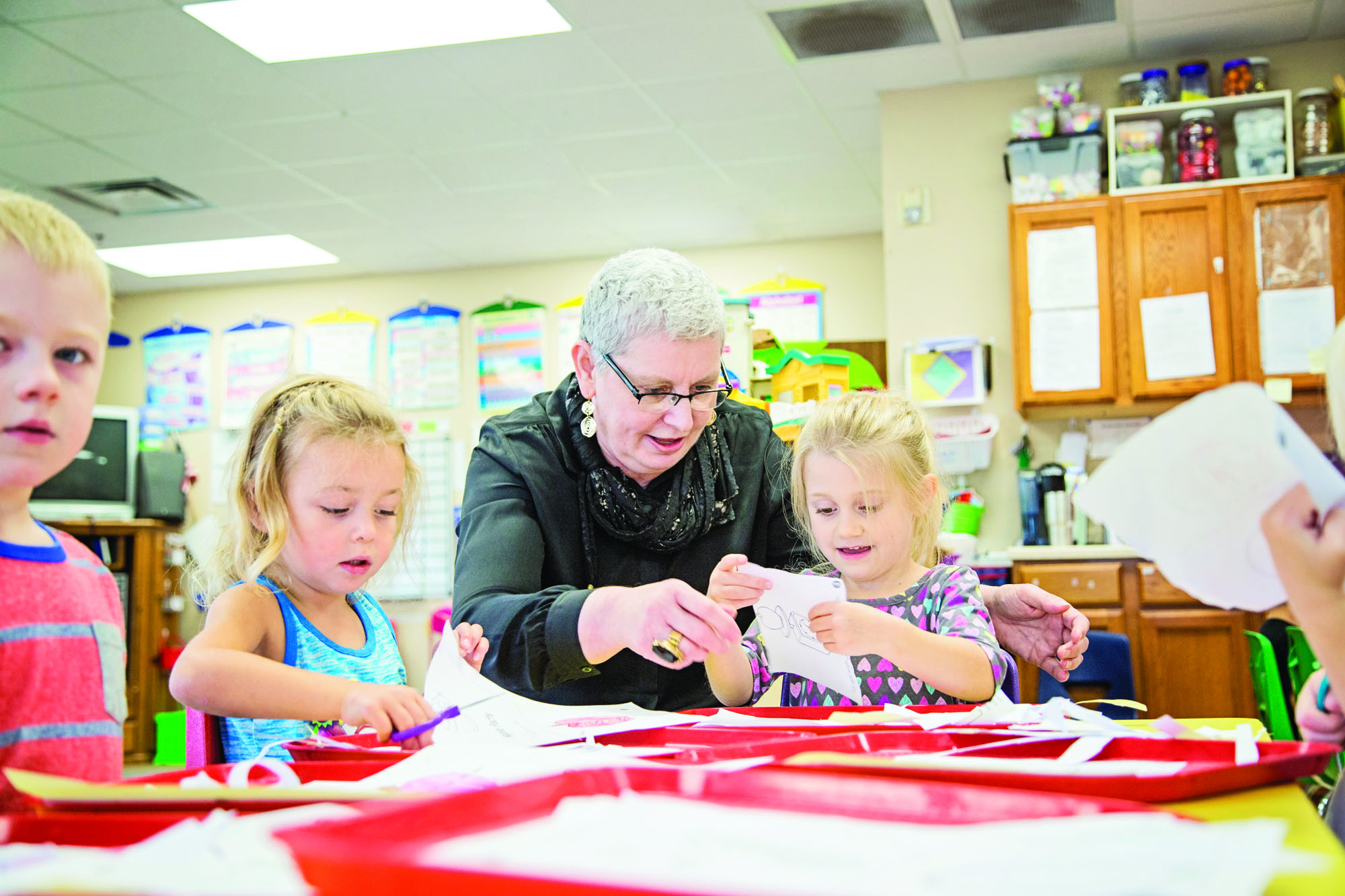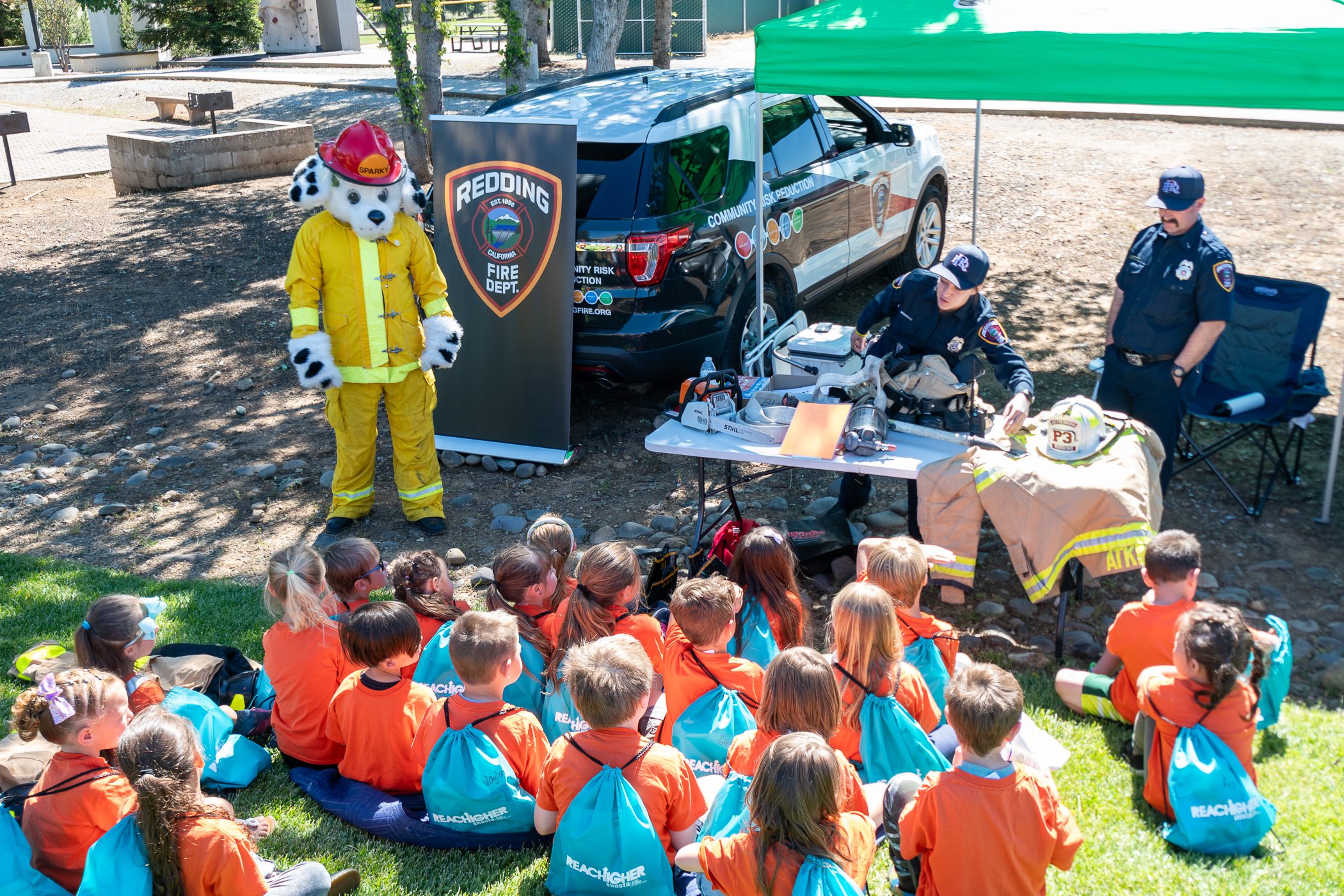How science experiments motivate curiosity in Grade School classrooms
Wiki Article
Understanding Elementary School: Trick Facts and Exciting Tasks for each Trainee
Grade college acts as an important foundation for trainees, blending academic knowing with the growth of social abilities. This duration is necessary for promoting emotional intelligence and resilience. Involving activities can enhance interest and motivation, however the difficulty depends on finding the right balance. As educators and moms and dads browse this landscape, recognizing the multifaceted nature of elementary school comes to be essential. What techniques can properly support pupils in this transformative phase?The Value of Social Skills in Quality School
Although academic understanding is crucial, social abilities play a crucial role in quality college growth. Throughout these developmental years, youngsters learn to communicate with their peers, work out problems, and build friendships. Social abilities encompass a variety of expertises, including reliable communication, empathy, and synergy. These capabilities make it possible for trainees to navigate the intricacies of social dynamics within the class and past.As youngsters take part in group tasks and joint jobs, they develop essential social abilities that add to their emotional knowledge. This foundational proficiency promotes a feeling of belonging and improves overall health. Children that have solid social skills often tend to experience much better scholastic results, as they are much more likely to participate actively in discussions and seek aid when required.
Essentially, the growing of social skills during grade college is not just beneficial yet vital for cultivating an all-around individual planned for future challenges.
Stabilizing Academics and Creative Thinking
As pupils progress with grade school, balancing academics with imagination becomes important to their total advancement. This equilibrium cultivates vital thinking, analytical, and advancement, skills essential for future success. Academic topics offer foundational expertise, while innovative tasks encourage pupils to express themselves and check out originalities.Including creative thinking into the educational program can improve engagement and motivation, enabling pupils to attach with the material on a deeper degree (Private School). Jobs that blend topics, such as art and scientific research, can promote interest and advertise a love for understanding
Innovative electrical outlets like music, dramatization, and visual arts aid trainees create emotional knowledge and resilience. These experiences add to a versatile education and learning, preparing students for a quickly changing world.
Inevitably, prioritizing both academics and creative thinking gears up pupils with a diverse ability, enabling them to navigate obstacles and seize chances efficiently throughout their educational journey and beyond.
Engaging Activities to Improve Learning
Countless engaging tasks can considerably boost finding out experiences for quality institution pupils. These tasks not only make learning enjoyable however additionally aid strengthen essential principles. Hands-on experiments in science classes enable trainees to discover concepts almost, cultivating inquisitiveness and much deeper understanding. In a similar way, interactive narration sessions can boost proficiency abilities while sparking imagination and creativity.Team jobs urge collaboration, teaching students the importance of teamwork and communication. Incorporating technology, such as electronic tests and academic games, can also captivate students' attention and make finding out more vibrant. Arts and crafts projects can aid in the growth of great electric motor skills while offering an imaginative outlet.
Additionally, exterior activities, like nature walks or scavenger hunts, attach pupils with the atmosphere and promote physical health. By incorporating these appealing activities into the educational program, teachers can create a boosting understanding ambience that satisfies diverse learning designs and keeps pupils motivated.
The Role of Parental Support in Education And Learning
Adult support plays a substantial function in the academic trip of elementary school pupils. Research shows that when parents proactively participate in their kid's education, it positively impacts academic efficiency, motivation, and overall well-being. Private School. Constant participation, whether with research help or participating in school events, fosters a complacency and enhances the value of educationEfficient interaction between moms and dads and teachers enhances the learning experience. Parents that team up with instructors can better comprehend their youngster's strengths and difficulties, allowing for tailored assistance. This collaboration urges liability and sets high expectations for trainees.
Furthermore, adult mindsets towards education and learning substantially affect children's point of views. When moms and dads demonstrate a positive overview on understanding, it grows curiosity and resilience in their kids. Eventually, the structure of adult assistance is important fit pupils' perspectives, actions, and scholastic success throughout their quality institution years.
Developing a Positive Learning Setting
Producing a positive learning environment is essential for cultivating academic success and emotional wellness among elementary school trainees. Such an environment advertises involvement, motivates collaboration, and boosts inspiration. Teachers play a considerable function in developing this ambience by executing strategies that prioritize respect, assistance, and inclusivity.Class administration practices, such as clear assumptions and constructive comments, are essential in supporting a sense of safety and security. In addition, incorporating varied teaching approaches can deal with numerous discovering designs, making sure that all pupils feel valued.
Encouraging peer communications and team tasks also grows social abilities and a sense of area. Celebrating success, despite just how small, enhances positive habits and boosts self-esteem.
Ultimately, a favorable discovering environment not only boosts academic performance however additionally fosters psychological strength, helping students prosper both inside and outside the class. This foundation is significant for their total growth and lifelong learning journey.
Approaches for Developing Critical Believing Abilities
Reliable techniques Private School for creating crucial believing abilities in elementary school include motivating inquiry-based knowing and advertising analytic tasks. Inquiry-based learning promotes inquisitiveness and permits students to explore concerns, while analytical tasks test them to use their knowledge in practical scenarios. With each other, these methods enhance students' capability to believe seriously and individually.Motivating Inquiry-Based Knowing
Just how can instructors cultivate a class atmosphere that advertises inquiry-based knowing? Teachers can create an atmosphere that encourages interest by presenting flexible questions and assisting in conversations that motivate trainees to check out various viewpoints. Urging students to ask their very own concerns can even more stimulate their important thinking skills. Incorporating real-world troubles and hands-on tasks enables students to involve directly with the product, cultivating deeper understanding. Additionally, providing chances for collective projects can boost peer-to-peer discovering, where students share understandings and improve each other's concepts. By incorporating technology and sources that support expedition, educators can aid students take possession of their discovering trip, consequently cultivating a frame of mind of inquiry that extends past the class.Promoting Problem-Solving Activities
While promoting analytic tasks in the classroom, teachers can considerably improve students' critical thinking abilities. By including hands-on jobs, seminar, and real-world situations, teachers urge students to evaluate scenarios, recognize patterns, and discover numerous services. Involving pupils in collective challenges not only advertises teamwork yet also improves their capacity to express reasoning and justify their options. Additionally, incorporating technology with coding workouts or simulations can stimulate creative analytical methods. Examining trainees' idea procedures via reflective techniques allows for much deeper understanding and improvement. Overall, promoting analytical activities cultivates an environment where essential assuming thrives, equipping students with vital abilities for future scholastic and life challenges. These methods inevitably prepare learners to navigate complicated concerns with self-confidence and innovation.
Frequently Asked Questions
What Age Do Kid Commonly Start Elementary School?
Youngsters typically start grade institution at around age 6. This age can vary slightly depending on local academic plans and specific preparedness, but six years old is one of the most usual beginning factor for formal education and learning.How Can I Help My Youngster With Research?
To aid with homework, parents can create an organized setting, develop a routine, motivate concerns, offer resources, and supply assistance without offering direct responses, cultivating independence and crucial reasoning in their kid's knowing procedure.What Prevail Quality Institution Learning Obstacles?
Typical elementary school learning challenges consist of difficulties with checking out understanding, mathematics principles, interest span, and social abilities. These obstacles can impact scholastic performance and require customized support to help pupils achieve their full potential.Just How Can Moms And Dads Communicate Effectively With Educators?
Effective interaction in between parents and teachers can be accomplished through routine updates, open dialogues, scheduled meetings, and energetic listening. Developing a collective partnership cultivates understanding and supports the youngster's academic journey positively.What Extracurricular Tasks Are Available in Quality College?
Grade colleges usually use a selection of extracurricular activities, consisting of sporting activities teams, songs and art programs, drama clubs, and academic competitors. These tasks enhance social skills, foster team effort, and urge creative thinking amongst students outside the classroom.
Quality college serves as a crucial foundation for trainees, blending academic understanding with the growth of social abilities. Many engaging tasks can considerably enhance finding out experiences for grade college students. Developing a favorable understanding environment is essential for promoting academic success and psychological well-being among quality school pupils. Inquiry-based knowing cultivates curiosity and permits trainees to discover questions, while analytic activities test them to use their understanding in sensible situations. While cultivating problem-solving activities in the class, educators can significantly improve pupils' critical thinking skills.
Report this wiki page